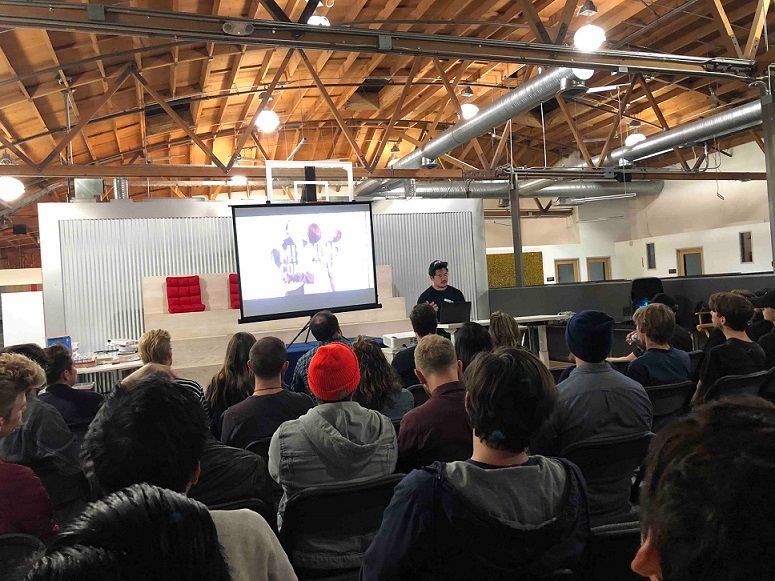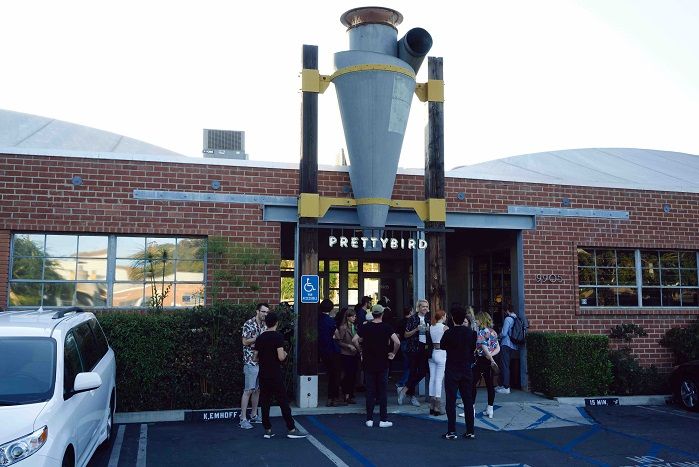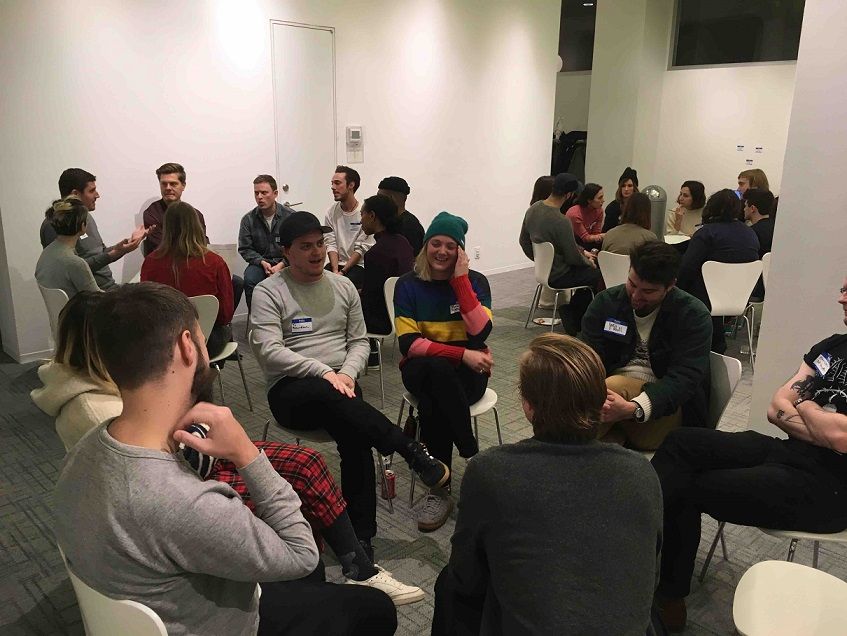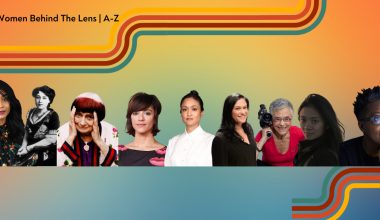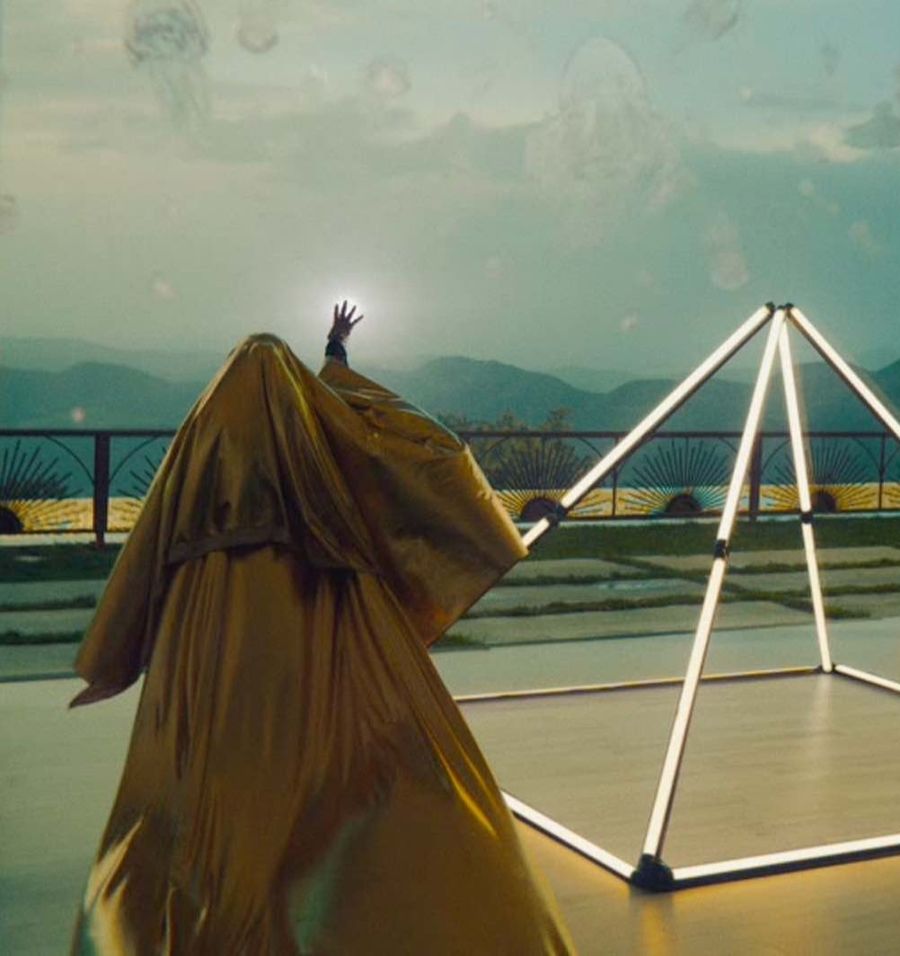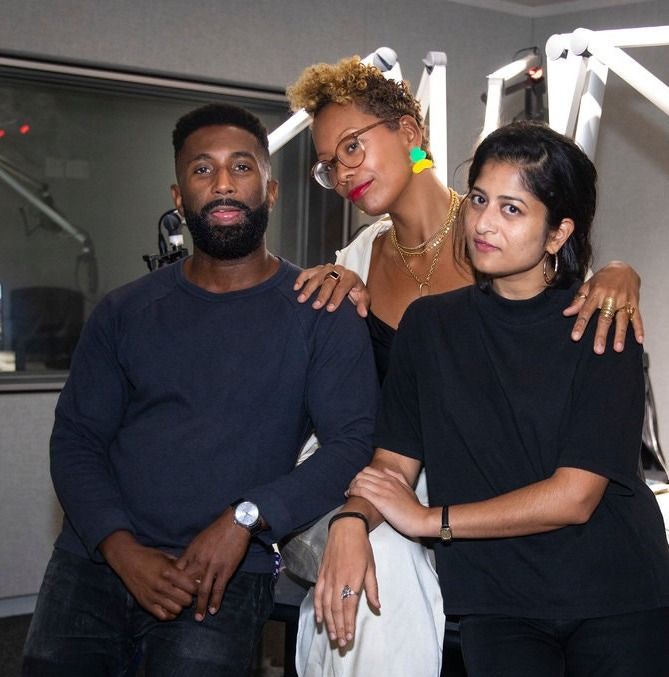Regardless of whether you work for the U.N. or a Wendy’s, you’ve probably wanted to go up to your boss and say, “I’m straight-up not having a good time.” Workers are subject to unfair treatment across all industries, and the music video industry is no exception. Maegan Houang is a director who has worked on several acclaimed music videos for artists such as Mitski, Charly Bliss, Chastity Belt, and Skylar Spence. Maegan knows that there’s a lot of work to be done to improve the rights of people who work in music videos, which is why she is also a part of We Direct Music Videos, a volunteer-run organization of producers and directors that want to make the music video industry a community where creators feel supported and protected.
WDMV has already gained the support of notable directors like Alma Har’el, Melina Matsoukas, and Hiro Murai, and they recently released “Guidelines and Best Practices for the Pitching Process,” and a whole new database of creative resources, which is a goldmine for anyone interested in working on music videos. There is even a Spanish of the guidelines available for download. We connected with Maegan to learn more about her journey in the music video world and how WDMV plans to bring back the good times to crews and artists in the music video industry.
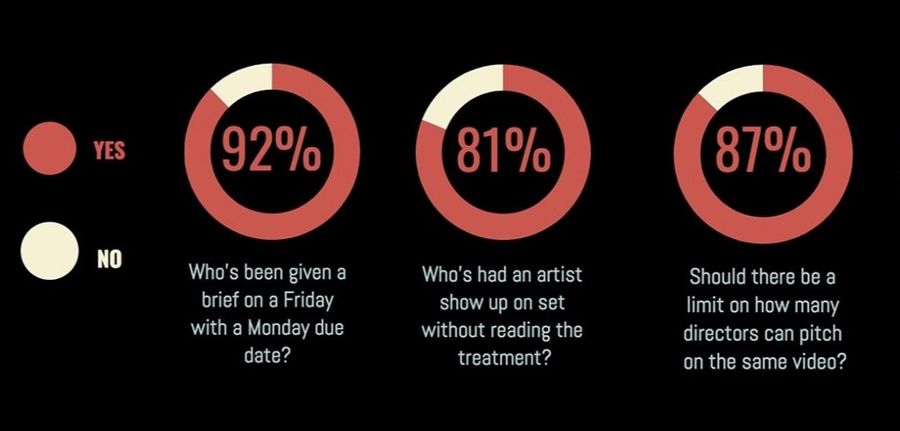
How did you start your career as a music video director?
Maegan Houang: While I first started directing music videos, I was also working full-time as an assistant for different companies and shows. I’ve never been financially reliant on making short-form content. I usually worked 60 hour weeks, but when I was directing videos, I would work 80 hours or more a week. I couldn’t really do more than one or two videos in a year, so I tried to really only pursue projects where I had a lot of creative respect for and from the artist, label, and the manager.
What was one of the biggest challenges you encountered on a project?
One of the most difficult experiences I had was when I was working on a video with a really low budget and I ended up paying for about half the video. As soon as I got to set, the artist’s creative director wouldn’t stop interfering. At one point he started taking things down from the set. It was really frustrating because the crew was working for free and I was putting in my own money. It didn’t feel like a creative collaboration. It felt like they were telling me, “you work for me," and if I had known that from the start, I may not have been as comfortable investing so much of my own money and time.
It’s a really difficult and common situation people get into, in large part because everyone wants to do the best job possible to build their reel. We work in an industry where often people are hesitant to take risks and choose directors, especially those from marginalized communities, if and only if they have done the exact same thing before.
How did you protect your rights as a music video director?
Because of my experience working in business affairs, whenever I write a contract, I really try to protect myself. I had a day job, so I wasn’t afraid of losing a gig if the client didn’t meet my specific conditions. I send an email to the manager saying,“Look I’m not gonna get paid. Can I please have the right to remove my name from this video?” If I don’t like the cut, I want the right to take my name off this and have my own director’s cut.” The thing is, they almost never say no to my requests. I think we as music video directors have become incredibly fearful to ask for what we deserve. Part of the importance of WDMV is changing that kind of thinking within our community.
Another really basic thing I’ve asked for is for the crew to be credited in the YouTube description. I’ve also been offered to pitch on a bigger budget stuff, but I often reject videos that have a two-week turnaround. Working full time and completing a video in that amount of time basically guarantees it probably won't be very good.
How did you protect your rights as a music video director?
Because of my experience working in business affairs, whenever I write a contract, I really try to protect myself. I had a day job, so I wasn’t afraid of losing a gig if the client didn’t meet my specific conditions. I send an email to the manager saying,“Look I’m not gonna get paid. Can I please have the right to remove my name from this video?” If I don’t like the cut, I want the right to take my name off this and have my own director’s cut.” The thing is, they almost never say no to my requests. I think we as music video directors have become incredibly fearful to ask for what we deserve. Part of the importance of WDMV is changing that kind of thinking within our community.
Another really basic thing I’ve asked for is for the crew to be credited in the YouTube description. I’ve also been offered to pitch on a bigger budget stuff, but I often reject videos that have a two-week turnaround. Working full time and completing a video in that amount of time basically guarantees it probably won't be very good.
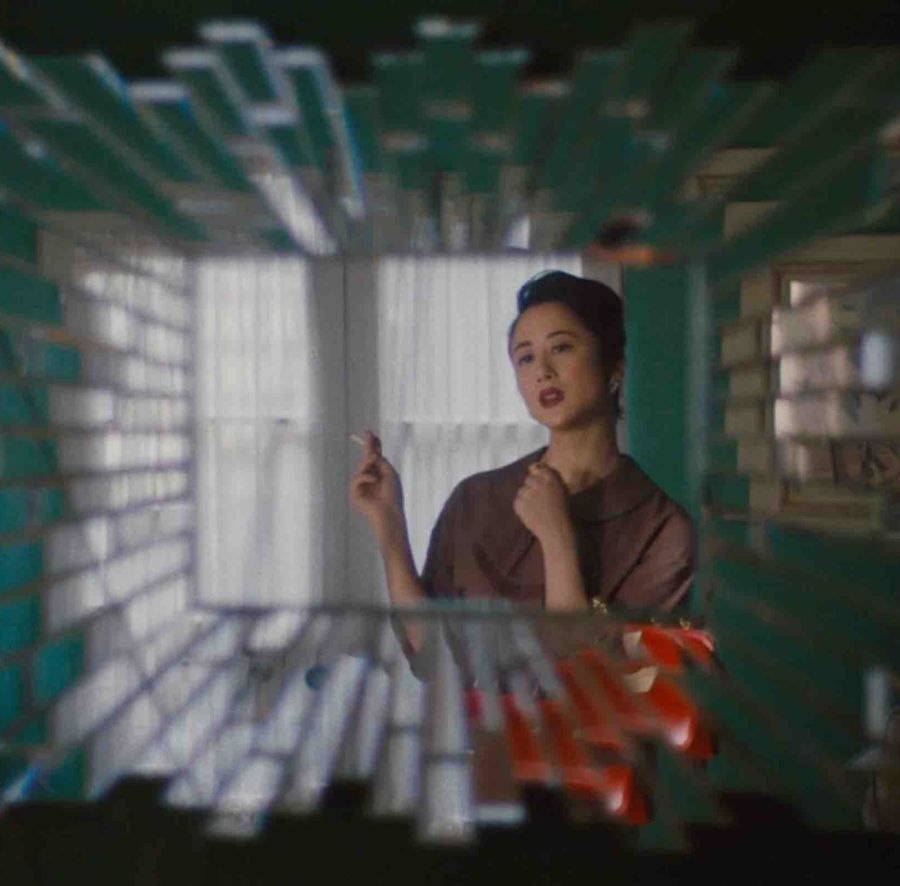
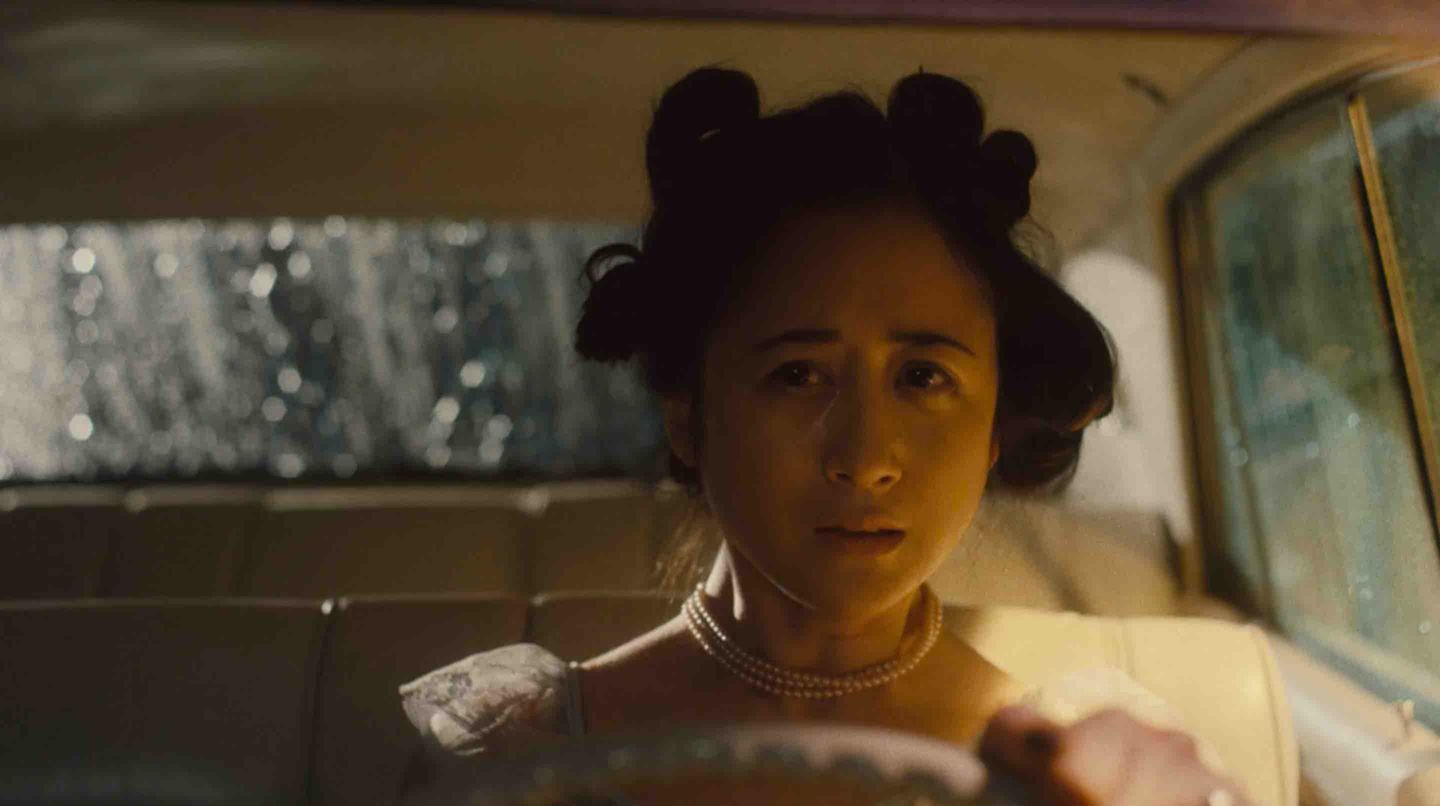
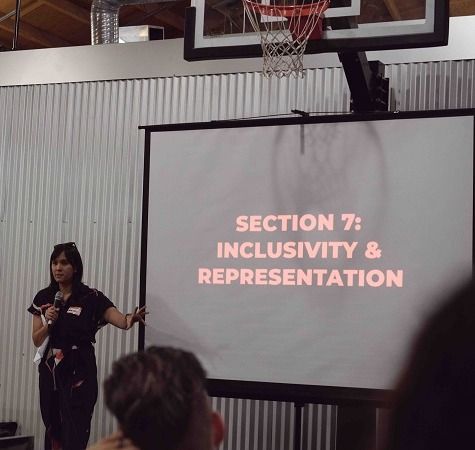
How did you get involved with We Direct Music Videos and how did it all come together?
Labor day last year, Dan Kwan tweeted a really long thread about how he and Daniel Scheinert put in about a month of full-time work on their “Turn Down For What” music video , but only made $1,000 each. The response from people with similar stories was overwhelming. Dan put out a call for volunteers who wanted to help out with the movement for protecting the rights of directors, and I immediately tweeted at him that I was down to help.
We started meeting on a monthly or bimonthly basis with a handful of other volunteers to try to figure out what we should do first. We held a large town hall at his production company, Prettybird, and around 100-200 directors came. Almost all of them complained about the pitching process. So the first thing we decided to do was to create these guidelines to address the common issues directors face during the pitching process. Our goal was to advocate for more respect, transparency, and minimized free work for our community.
What’s the response been to the guidelines?
Overall, we’ve had a really positive response, not only from fellow directors but also commissioners. This is a moment where directors finally feel heard. When we formed these guidelines, we talked to a lot of different types of people and companies in the industry to make sure that the guidelines worked for everyone. We wanted to make sure they were fair so everyone would be more eager to agree to follow them. That being said, I don’t think any of us expect to change every single person’s mind in the music video industry. If the guidelines help prepare 80% (or even 50%) of directors for their pitching sessions, we feel like that’s a win.
How many people are in this initial collective?
The core group started with around 10 volunteers. Now we have over 40 volunteers from around the world. We are excited to announce over 1,700 directors, production companies, commissioners, artists, and labels have signed the pledge to support the mission of WDMV.
For more about working in the music video industry, check out the first episode of the Free the Work Podcast which features Maegan and directors Daniel Kwan, Melina Matsoukas, and Alma Har'el.
